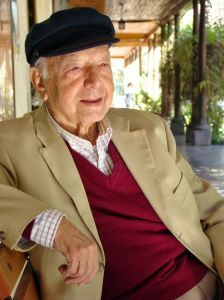Last night’s, “My Dear God:” A Conversation on the Faith of Flannery O’ Connor event at The Camp House went swimmingly.
There were so many great topics addressed and quotes given that I couldn’t possibly get them all down.
But, I’ll try to re-cap some of the highlights.
For starters:
- It’s nice to know Flannery O’ Connor was human after all. She worried like anyone else. When admitted to the University of Iowa, she worried about being smart enough to attend a mid-western graduate school.
- She also had a thick Southern accent. For anyone who has one of those, apparently O’ Connor’s was so thick, the writing program director couldn’t understand her when she asked to be admitted into the Iowa Writer’s Workshop program (she didn’t like journalism and wanted to switch gears). So, he eventually wanted her to write it down to make it easier for both of them. She simply wrote on paper, “Want in,” and it helped her leave a career in reporting behind and fiction straight ahead.
- O’ Connor created a prayer journal around her early 20s and only wrote in it for about 1.5 years. The journal is reflective of her closeness to God and changes (as she does in her relationship) in that time frame. From the way she addresses the Creator to the subject matter of the prayers themselves, there is a nice lens in which to see her grapple with her Catholic faith and her daily trips to Mass.
- O’ Connor wrestled with authenticity (like most of us do). She didn’t want to be a phony. She didn’t want to be a fraud. But, she also didn’t want to leave God out of her life’s work. Her prayers are representative of this. (The journal was released in 2013 by her peer, William Sessions.)
- And what I find the neatest portion of her short 39-year legacy on this earth is her progress from writing down her prayers to God inside this journal to her writing itself becoming her prayer to God.
Here are some amazing quotes she offered while alive about the topic of prayer (and writing for God). Notice her approach:
- “I do not mean to deny the traditional prayers I have said all my life, but I have been saying them and not feeling them.”
- “My attention is always very fugitive. This way I have it every instant. I can feel a warmth of love heating me when I think & write this to You.”
- “My dear God, how stupid we people are until You give us something. Even in praying it is You who have to pray in us.”
- “There is a whole sensible world around me that I should be able to turn to Your Praise; but I cannot do it. Yet at some insipid moment when I may possibly be thinking of floor wax or pigeon eggs, the opening of a beautiful prayer may come up from my subconscious and lead me to write something exalted.”
- “Don’t let me ever think, dear God, that I was anything but the instrument for Your story–just like the typewriter was mine.”
- “I want so to love God all the way. At the same time I want all the things that seem opposed to it–I want to be a fine writer.”
- “Please let Christian principles permeate my writing, and please let there be enough of my writing (published) for Christian principles to permeate.”
- “Please help me dear God to be a good writer and to get something else accepted.”
- “If I ever do get to be a fine writer, it will not be because I am a fine writer but because God has given me credit for a few of the things He kindly wrote for me.”
- “Give me the grace, dear God, to adore You, for even this I cannot do for myself.”
O’ Connor developed lupus and only lived to age 39, but, her words still resonate with writers and readers alike today.
One article by Casep Cep in The New Yorker states how she personally utilizes a prayer journal like O’ Connor. She says, “For years, when I was starting to write, I prayed, “God let my words lead them to yours; let me lead them to you.” I wrote that prayer in the margins of pages and on the inside covers of my notebooks, hoping that I would produce something that might serve the Lord.” And goes on to add, “Her (O’ Connor’s) journal ended when her prayers became fully integrated in her writing; the literature itself was a prayer, an offering to God.”
I love that message. So whatever your gift is…Maybe you’re still finding it. Maybe you have more than one. Try to fine tune it and use it for Him. Writing. Cooking. Basketball. Parenting. All of the above. Start broad and narrow your scope over time.
O’ Connor’s cry to God started as a prayer journal that functioned alongside the fiction she created. And when she had listened (and prayed) to God intently to understand her direction in life, she was able to grow and fulfill her purpose strictly through that one medium: her writing to God–His story through her fiction.
What’s your offering?




